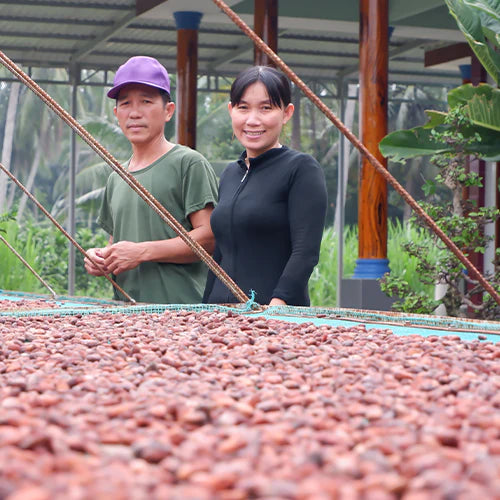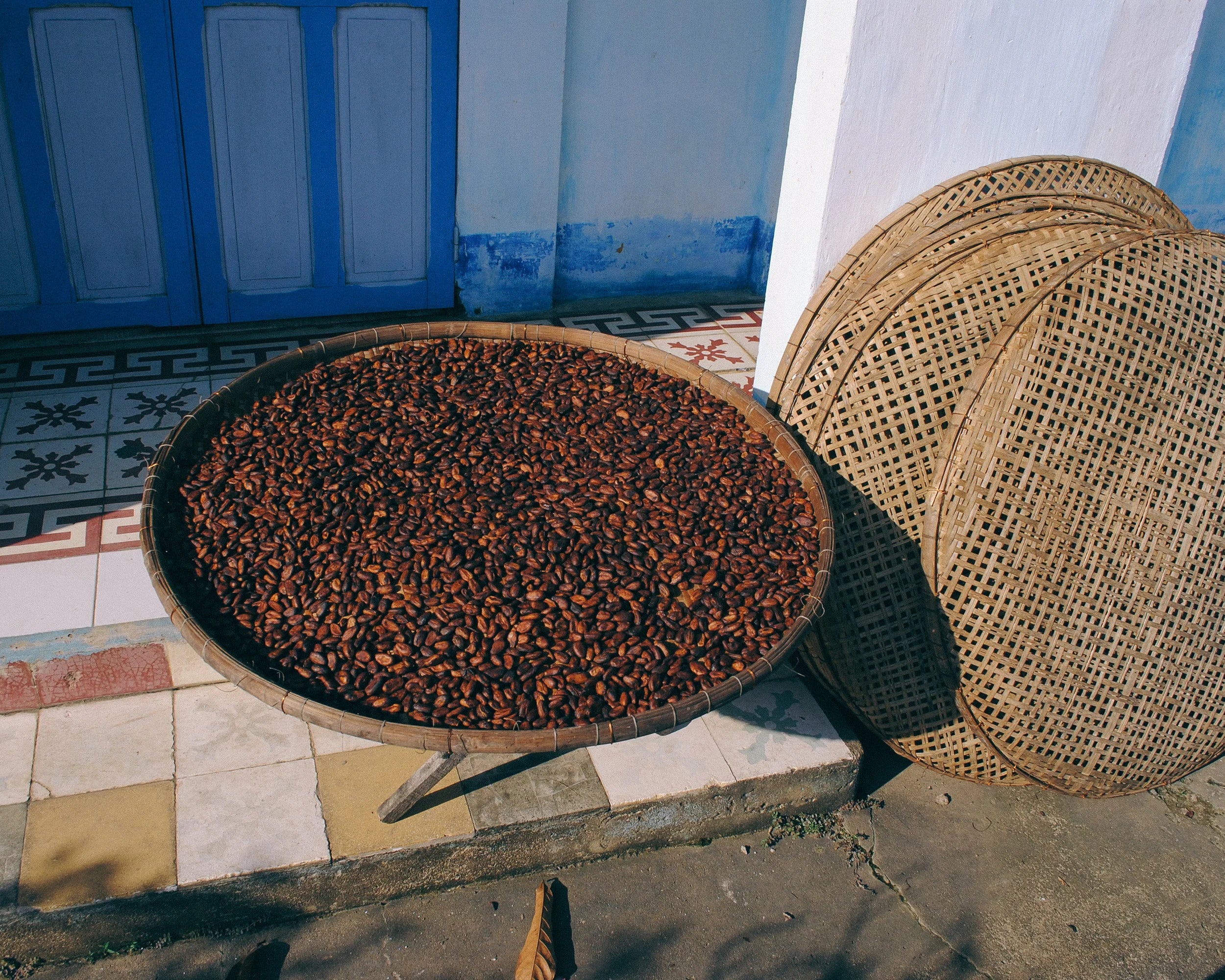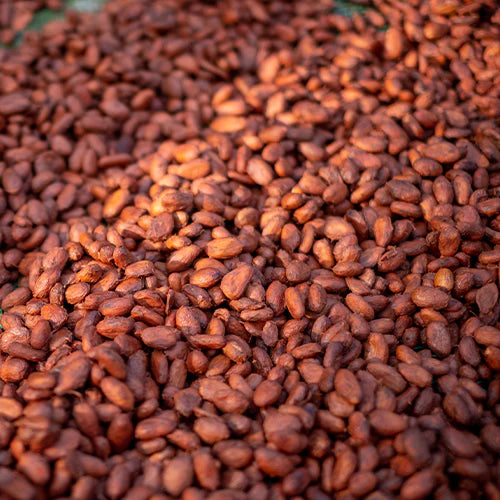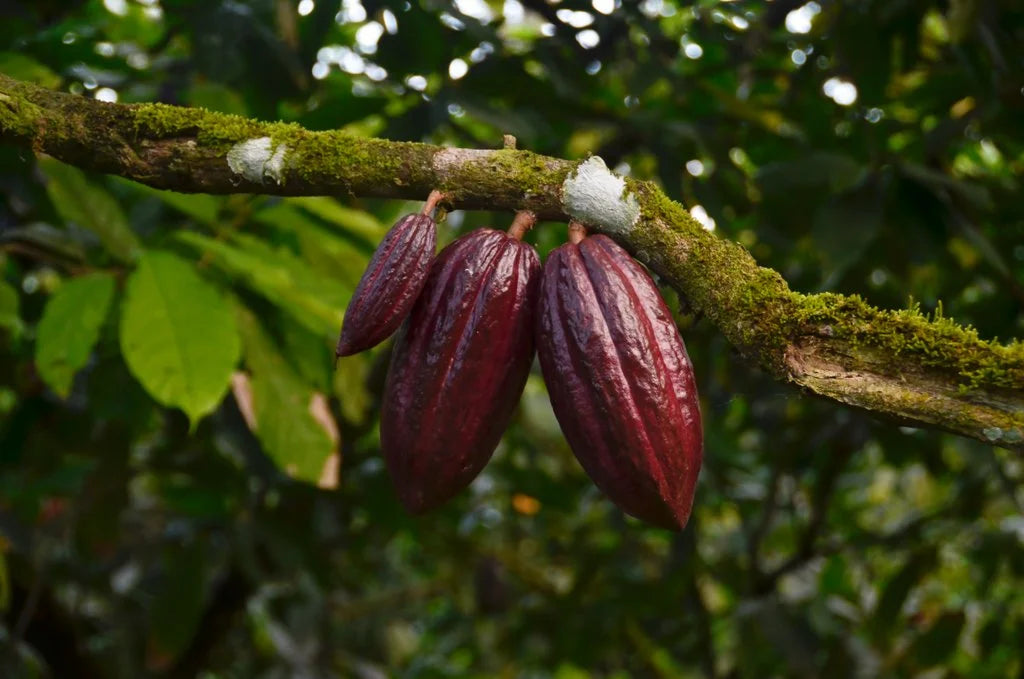written by Jonathan Denis
12-03-2024
CACAO
IN 2024
Discover the upheavals impacting the world of cacao in 2024.
Follow us on this exploration, from introduction to key points, to grasp the challenges and promises of a rapidly evolving sector. 🌿🍫


CACAO IN 2024

Let's try to summarize the situation in a few lines:
Production volumes inCôte d'Ivoire and Ghana are well below their usual yields. Several bad seasons in a row have left insufficient stocks to compensate for the vagaries of the weather. Plantations are aging, and investment in new ones has been slow. Diseases linked to climate change are on the increase, and varieties resistant to these new factors could take decades to emerge and represent a significant share of world production. This combination of factors has eroded the capacity of these mega-producing countries alone to absorb a large proportion of the world's cacao needs.
Incase you didn't know, Côte d'Ivoire and Ghana account for more than 60% of the world cacao market, i.e. cacao that can be traced, blended, spread over millions of hectares with no search for singularity and nurtured by a taste standardization approach. This kind of cacao gives a free hand to the big industrialists, who are looking above all for a low price in order to continue relentlessly to make maximum profit at the expense of people, from producer to consumer.
The upward trend is ignited when these same players begin to extend their predation to all producer countries. The hunt is on to buy up everything possible. The factories have to run, and the model has to last a little longer. Then there are the profit-hungry stock-marketers, the hedge funds aiming for future profits, hedging their positions to reduce losses or anticipating future gains that will benefit them alone.
In the past, the gap between fine, specialty, single-farm/single-origin cacaos and those on the commodity market was very wide, on average 2x to 6x more expensive in these niche markets, where the entire value chain was valued: agro-ecology, high purchase price, respect for people and the natural environment, promotion of low-productivity old varieties, and so on. These days, with prices skyrocketing in a very short space of time, the two markets (bulk/commodity vs. specialty cacao) are now side by side, and it's not uncommon to see contracts negotiated several months ago being called into question as other buyers offer a better price.
Fortunately, long-term collaborations are more resistant to this opportunism, but sooner or later we'll have to adapt to the new reality.
Artisans, for their part, will benefit from this opportunity. Of course, the price of beans will rise by 2, 3 or even 4 euros/kg, but this is not the most important item for them; the craftsmen's share of the work is far more important. Manufacturers, having already eliminated and rationalized to the extreme the number of workers involved in confection, will be much more affected. Will the price wars visible in supermarkets finally be abolished? What will be the attitude of the industry's giants to these new challenges?




What is this new reality?
The new world depicts a situation that is here to stay. It's becoming tempting for growers to abandon old and rare varieties in favor of 4x more profitable cacao per hectare, sold now at a much better price.
Prices will also consolidate, driven by strong demand, the aforementioned realities of the terrain and climate, the challenges of freight, less abundant fossil fuels and, above all, a drastic and essential change in our regard for the hands that work to produce quality cacao.
The gains for producers are not yet noticeable everywhere, but it's only a matter of time.
Some focus on the abolition of child labor, others on working conditions and remuneration; it's time to respect and honor the people who are the main players in the globalized agricultural sector.
It's time tooffer these people a wage that allows them to rise, to see ahead, to provide the education and care they and their families rightly deserve. Enhancing the value of the sector means above all enhancing the value of men and women, giving them the economic, social, cultural and technical assets to emancipate themselves, while preserving land, practices and biodiversity.

How can we achieve change?
Relying on the market is not the solution. The action of each of the parties involved is essential: taking responsibility, working conscientiously and reducing the selfish and mercantile propensity for fairness and equity.
You, the lovers of chocolate or medicinal cacao, also play an essential role. Be the change, embracing the idea that your chocolate bar or drink will be appreciated all the more for what it's worth.
It doesn't make sense tolook for the cheap stuff, to shake up consumer habits by jumping from one artisan to another, from one brand to another, from one store to another in order to optimize your shopping basket.
Invest in your food and those who produce it with passion.
If rationality is to be valued, it lies above all in the quantities consumed. Quality and the values held by those who give you access to these natural treasures are the most important axes to keep an eye on in our little inner calculations.

